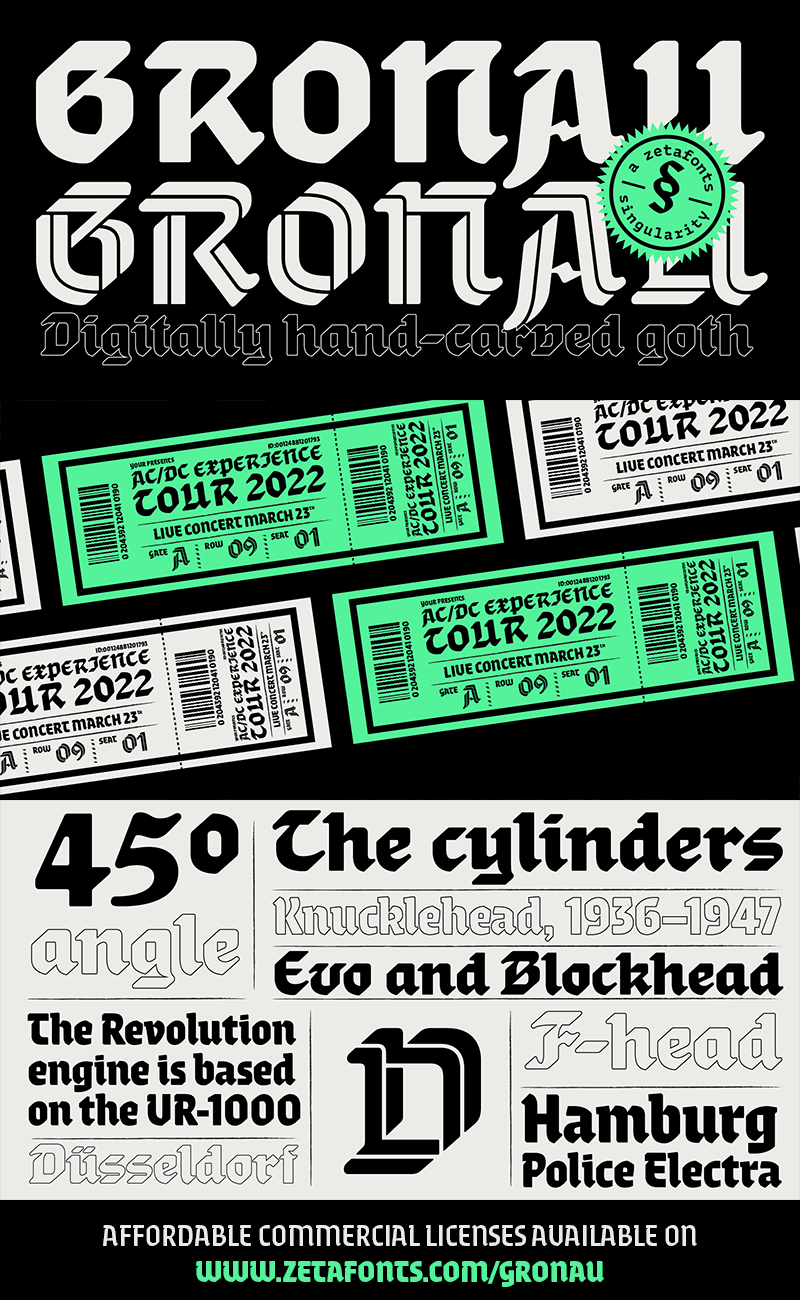Note of the author
The font here is for PERSONAL/NON-COMMERCIAL USE ONLY!
To download the full font family (all weights, glyphs and numbers) and acquire the commercial license please visit our website:
https://www.zetafonts.com/gronau
Join the exclusive Type Club to get free fonts and special offers on new releases!
https://www.zetafonts.com/typeclub
CONTACT US:
website: https://www.zetafonts.com
have a question?: info@zetafonts.com
Andrea Tartarelli discovered the letterforms that would inspire his Gronau family in a 1912 specimen by the Berlin-based Wilhelm Gronaus Schriftgie?erei, that showcased the typeface Fette Reichs-Deutsch, designed by Wilhelm Gronau in 1902. Even if Gronau also cerated Art Nouveau inspired typefaces like Berolina or idiosyncratic S?tterlin ?blackletter cursives? like Hohenzollern Schrift, his work mostly centres on gothic letter shapes.
Fette Reichs Deutsch, that Tartarelli digitised as Gronau Fette, sports a very broad and square structure, mild contrast and a very geometric treatment of shapes, with slightly rounded terminals, straight lines and clear 45 degree angles. This unusual, pre-modernist approach to letterform inspired Tartarelli to explore its potential for display use, with the creation of an inline version that modernises the original and pushes to the maximum its dynamic energy. Gronau inline design transforms the broad nib marks into a ribbon folding in 3d to recreate the original letterforms, adding a dynamic, sporty language to the original typeface gothic feel. With Gronau Neue, Tartarelli tried to find a contemporary, gestural interpretation of blackletter shapes, adding a slightly calligraphic look and feel to to the original hasty lines and energetic construction.
This third variant of Gronau is the one that most departs from the original mode: using generous x-height and condensed proportions, it achieves a more contemporary feel and extends the family expressive range into display, editorial and packaging options. All the versions of Gronau sport a wide range of Open type features and glyph alternates, further enriching the usage possibility of this typeface that embodies our contemporary swap culture by embracing the many subtleties and historical interpretations of blackletter typography while at the same time playfully expressing with a digital, dynamic spirit.



 Your download will begin in 5 seconds.
Your download will begin in 5 seconds.





































